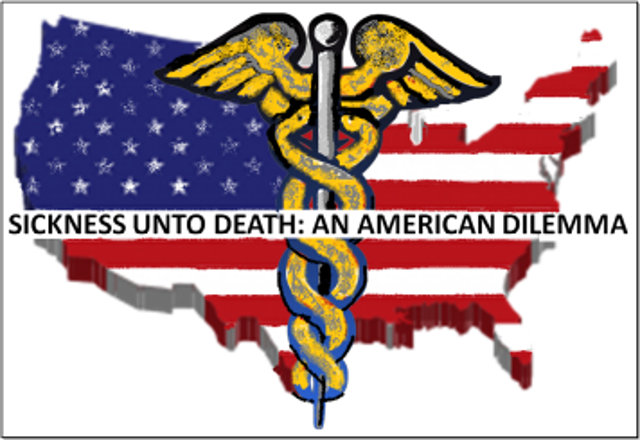Murphys, CA…The health of rural Americans is worse than those who live in cities, in part because rural health care systems are collapsing. This is a problem that has been long in the making. America shifted from a predominantly rural population to one that was more urban in 1920. This pattern continues today. In 1990, 25% of Americans still lived in rural counties. Today that proportion is closer to 17%. A more important characteristic is the difference between urban and rural areas in terms of income, poverty rates, and unemployment. According to research from the US Department of Agriculture, urban residents make nearly 30% more per year than do rural residents and the difference between these regions is growing. (USDA 2015). The rate of urban employment is 112% above what it was in 2000, while rural employment is at 97%. (USDA 2017). Consequently young people in rural areas are migrating to cities for employment and other opportunities, leaving the social fabric of rural areas older, fragmented, and less resilient. At the same time, the proportion of rural residents that are older or are veterans has substantially increased — populations that need more not less health care.

Cities are Where the Opportunities Are
The reasons for this economic transition arise from the advantages of cities over rural areas in the new economy. Cities offer economies of scale (greater density makes it easier to communicate and interact), larger pools of well-educated potential employees (the new economy requires technical training not available in rural areas), requisite infrastructure (very high speed Internet broadband, mass transit, and airports are generally not available), and access to capital. Venture capital firms are more likely to only invest in local economies — where “local” means urban areas. Some rural areas, particularly those offering recreational amenities are attracting new residents — mostly retired.
Disappearing Rural Healthcare
With a declining economic base and a health care model which presumes community hospitals will deliver care, rural areas of this country are in trouble. Since 2010, more than 80 rural hospitals have closed and literally hundreds are on the verge of bankruptcy. In California alone, nearly a hundred hospitals, mostly small and rural, have closed since 1996. (California Health Line 2014). Losing a hospital not only creates a loss for health care, it costs the community economically. Rural areas that lose a hospital see a fall in income and an increase in unemployment. (National Institute of Health 2006).
But the Need is Increasing
Males living in rural areas are 38% more likely to have chronic arthritis than their urban counterparts; 20% more likely to have diabetes; and are diagnosed with asthma 50% more frequently than city dwellers. (Georgetown University Health Policy Institute 2003). And the rural population is older — much older.
But it isn’t just the loss of health care that makes this problem so critical. There is a social crisis in rural America — unemployment, mental illness, drugs, and alcoholism are plaguing rural America. For example, opioid use is increasing at a faster rate in rural areas than in cities, particularly among white working-class people. (Keyes, et. al., National Institute of Health 2014). Suicide rates among rural youth is now double that of the urban young, with far less access to mental health care than in cities. (Fontanella, JAMA Pediatrics, 2015). As researchers put it, “Our research validates the hypothesis that rural healthcare providers serve populations which are not only socioeconomically disadvantaged but also suffer from numerous health disparities and poorer outcomes than non-rural communities.” (Chartis 2017).
Numerous studies have shown that Obamacare strengthened the financial health of rural hospitals by stabilizing payments, particularly for populations without health insurance. This is a conundrum that Republicans seeking to repeal Obamacare must confront. In fact, the highest proportion of rural hospitals most likely to close are in those states (Georgia, Texas, Louisiana, Mississippi) that chose not to expand Medicaid under Obamacare.
[To be continued next week]
Author: John MacWillie is a native of Calaveras County, California. He graduated from UC Berkeley where he studied European history and bio-engineering. His graduate studies include economics and urban planning at New York University and philosophy at San Francisco State. He received his Ph.D. from the University of Leeds in the U.K. He worked for ten years in law enforcement policy and administration in New York City, spent nearly thirty years as a senior executive in the software industry, primarily in information security, and for the past twelve years has been teaching in undergraduate and graduate programs at California State University — East Bay in multimedia, art history, and criminal justice. He resides with his wife, an attorney, in Murphys CA.


